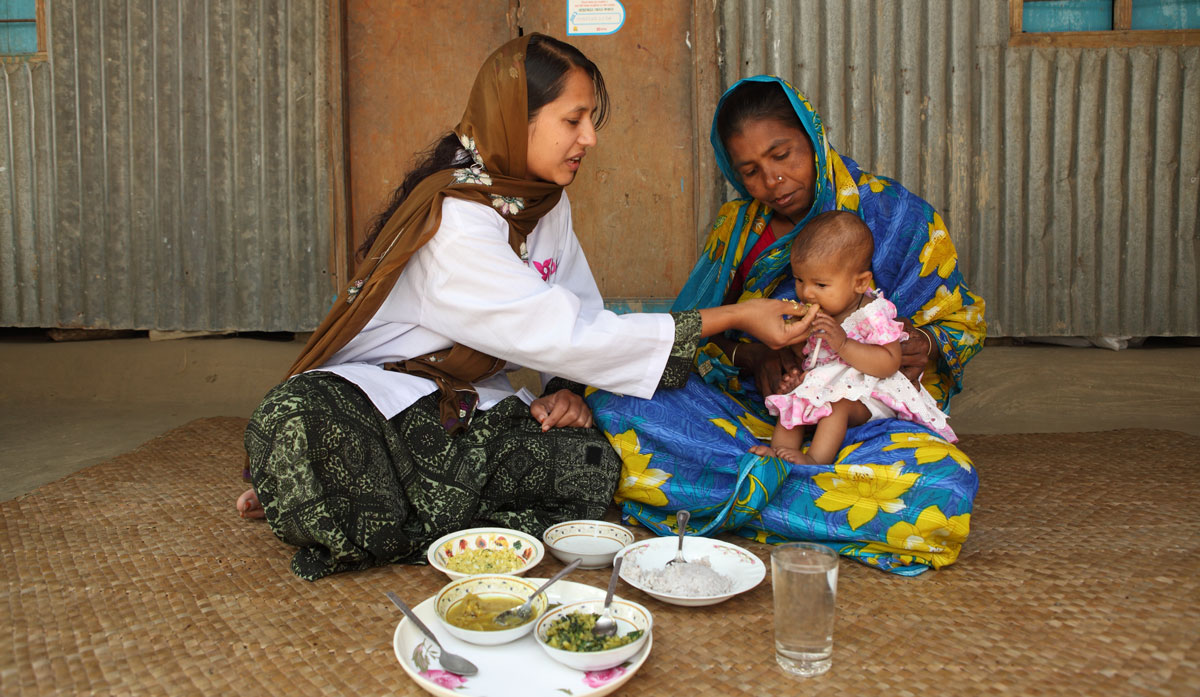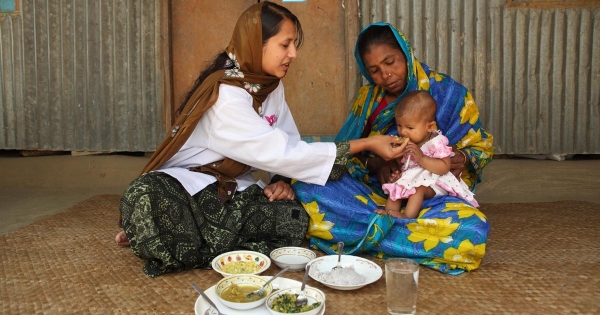
Effective implementation of the 'Second country investment plan: Nutrition- sensitive food systems' (CIP2) undertaken by the Bangladesh government will highly benefit the country's social security situation. The implementation of the plan will also substantially reduce the shortage of intake in Vitamin A, iron and zinc over a decade.
Experts gave these observations on Thursday (27 September), while presenting the findings of a study on the probable impact of CIP2, conceived by the Food Planning and Monitoring Unit under the Ministry of Food. The discussion session titled 'Final consultation on ex-ante impact assessment of CIP2' was organised at Westin Hotel in the capital.
The Research and Evaluation Division (RED) of BRAC conducted the study with support from Food and Agriculture Organisation (FAO). Earlier, BRAC presented four more analyses of the probable impact of CIP2 to have concluded with the Thursday's presentation, organisers said.
Chaired by Dr Kaosar Afsana, director of BRAC's Health Nutrition and Population Programme, the event was also addressed by guests of honour M Badrul Arefin, director general of Food Planning and Monitoring Unit (FPMU), and Md Shah Nawaz, director general, Bangladesh National Nutrition Council. FAO's senior policy analyst Benoist Veillerette also joined the session through Skype from Rome.
The experts presented their analysis on five sub-programmes of CIP2, the focuses of which are: improve and expand nutrition-sensitive agriculture programmes; sustain micronutrient-rich small fish production; scale up behaviour change communications on nutritious food preparation, safe storage, household processing and improved consumption; expand and strengthen safety net programmes (SNPs) supporting vulnerable groups including poor women, children, elderly, disabled people, displaced population and communities living in remote areas; and introduce nutrition-sensitive social safety net programmes especially for mothers and children.
Below are the highlights of the analysis
1.6 million (16 lakh) women will be trained in home gardening under CIP2, with an expectation that 12.3 million (1 crore 23 lakh) home gardens will be grown over a decade. It will lead to reducing the gap of intake in iron, zinc and Vitamin A up to 4.5%, 8% and 100%. Besides consumption, the families will also sell the produce. According to estimate of the BRAC study, the initiative will bring $2.6 benefits against investment of $1.
CIP2 will train 3.2 million (32 lakh) pond owners in mola and other small fish culture over a 10-year period and it is estimated that 30% of the training recipients will utilise their learning. The household consumption of the fish will help reduce gaps in iron, zinc and vitamin A intake by 15%, 25% and 100% respectively. The combined benefit from household consumption and selling is expected to amount to $4 against investment of each dollar.
Behaviour change communications training on nutritious food preparation, safe storage, household processing and improved consumption is also extremely important as it will help ensure proper nutritional intake at family level and reduce the number of babies with low birth weight.
The benefits of reaching social safety net programmes to the vulnerable communities is longer term, with a potential for bringing up to $28 against each dollar of investment.
FPMU director general M Badrul Arefin said, "Nutrition is among the priorities of the present government and we are working to fulfil it".
BRAC director Dr Kaosar Afsana said, Evidence-based original research and studies are essential for formulating effective nutrition sensitive plans. BRAC will do more such necessary studies in future.
To reduce prevalent malnutrition among mothers and children in the disadvantaged families and communities in Bangladesh foods like fortified rice are essential. The study viewed that nutrition sensitive programmes should be introduced in the government's social safety net initiatives.









